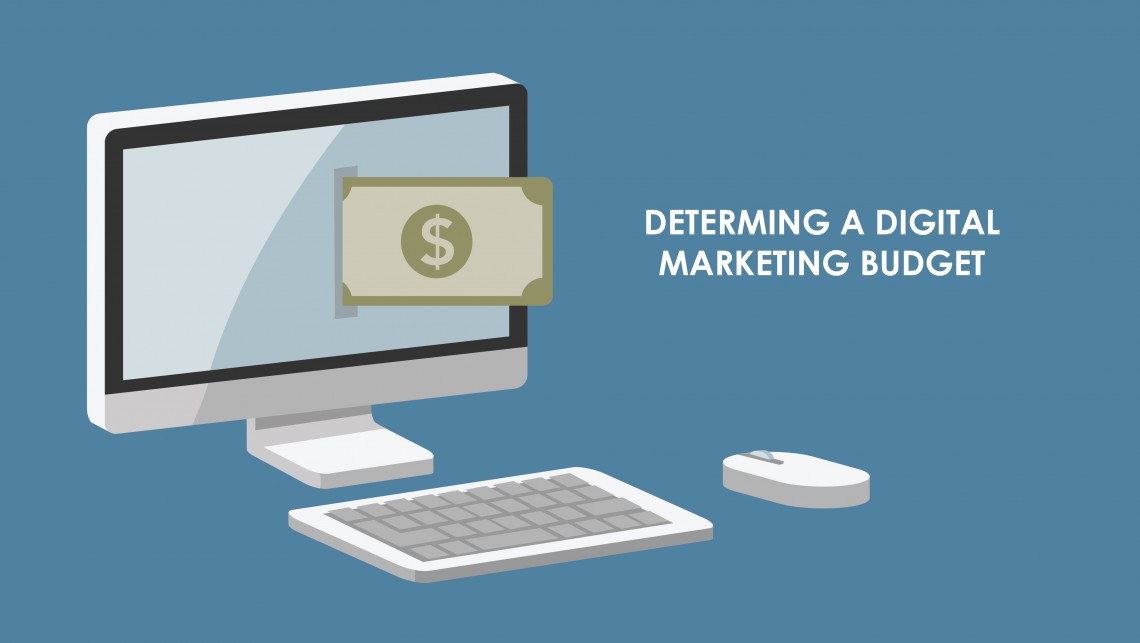Determining a Digital Marketing Budget and Strategy for B2B Companies
Posted on June 22, 2018
By Nick Chiechi, President, CS Designworks

B2B companies spend, on average, 8.2% of annual revenue on marketing, according to Duke University’s Fuqua School of Business’ “The CMO Survey: Highlights and Insights”. While no marketing budget allocation is one size fits all, there are key factors that can help you determine how much you should be allocating toward digital marketing.
Before we go over how to determine your digital marketing budget, it is important that you understand what digital marketing is. Digital marketing refers to all online marketing efforts, whether that be Google search results, email, websites, social media and more. The reality is that digital marketing is becoming more and more essential to all business as the time people spend on the Internet increases and shopping and buying habits change.1
Key Considerations
What is the purpose of marketing? Marketing lends itself to two key purposes, building brand awareness and increasing sales. It is also highly strategic and always has specific goals in mind.
Brand awareness is exactly what it sounds like, it means making people more aware of your brand. In digital marketing this can be measured in a variety of ways: number of followers, engagement rates, content downloads and views, and content shares. For the purpose of formulating a marketing strategy it is vital that you use a few key metrics, and not all of them, to gage brand awareness and see if goals are actually being met.
Sales in digital marketing are measured the same way it is in traditional marketing: converting first time buyers, retaining repeating customers, and profit. In digital marketing this is done primarily though a process called marketing automation. Marketing automation is software, such as hatchbuck and hubspot that are designed to help business generate, nurture, and manage leads.
Understanding these focuses will help to determine what the goals of a marketing strategy should be and what specific actions will need to be taken throughout the plan.
Goals
It is impossible to develop a marketing strategy, and therefore a budget without specific goals in mind. Specific is the keyword here: if goals are broad, unrealistic, and immeasurable then they are pointless. For digital marketing, it is best practice that goals can be completed within six months to a year. A couple examples of good digital marketing goals would be: “increase social media following by ‘x’ amount in the next year” (focused on building brand awareness) or “increase qualified leads generated through SEO efforts within the next 6 months” (focused on sales).
Digital Marketing Aspects
There are various aspects associated with digital marketing, these include: content creation and promotion, social media marketing, email marketing, paid search, display advertising, website optimization, and mobile marketing to name a few.
The key is prioritizing which ones will work better for your business specifically and focusing on those. It should be about quantity and not quality. Additionally, by not trying to take on every aspect of digital marketing at once you can reduce overhead cost.
Where Allocated Funds Get the Most Bang for Their Buck
This will very from business to business, but here are some helpful facts. According to Forrester Research, 35% of market spending is now toward online efforts, which is up 19% from 2011. Email is still important; three-quarters of companies agree that email offers “excellent” to good ROI.2 Which makes sense why email is still the most spent on category at 59.7%, followed closely by social media and online display advertising.3
As stated above it varies from business, the best way to tell is by trying things out and seeing what is worth the spending.
Execution
One advantage of digital marketing is that you can easily tell what your competition is doing, which should inform your marketing strategies. Observe your competitors can give you insights to which channels they use most and where the largest portion of their marketing budget appears to be allocated too. Do not copy their efforts exactly, after all one key component of marketing is differentiation.
Another factor of digital marketing that should inform your strategy is keywords. Finding the right keywords to target is an essential process as it allows for customers to discover you organically through search engines. Where as traditionally marketing tended to be more outbound, modern marketing is focused more on the inbound approach. Inbound marketing is all about making yourself valuable to the customer and having them find you based on that value.
Analyze and Adjust
For any strategy to be effective you must analyze what is working while the plan is still occurring. Analysis allows for you to see what is working and what is not. For example if you are finding that for your spending is bring the best ROI on email and SEO then increase spending on those categories while decreasing it from spending on categories that are bringing little to no return. By analyzing and adjusting your plan throughout the process, the chances of meeting your goals will increase.
In Review
Most companies know they need to have a marketing plan but have no idea where to start, or how much they should be spending. While traditional marketing is still relevant, digital marketing is gaining in importance, even for B2B companies. Formulating a budget and plan will help you to achieve goals and prevent funds from being wasted. For more information or to get help creating a marketing plan, contact us.
Sources
- https://blog.hubspot.com/marketing/what-is-digital-marketing#sm.001wpvkog1ax0flxsww1t6usf078q
- https://www.hubspot.com/marketing-statistics
- https://www.snapagency.com/blog/how-much-spend-digital-marketing
Join Our Blog Community
@CSDesignworks


